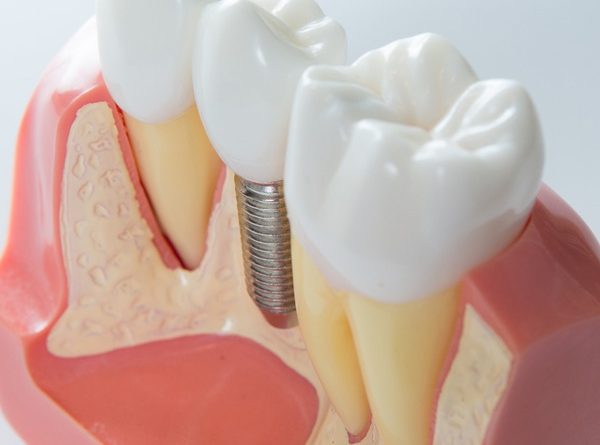What Factors Affect the Success of Dental Implants?
Dental implants have transformed how we approach dental health, providing a sturdy and lasting solution for missing teeth. But what contributes to their success? Let’s explore the critical factors that determine whether dental implants will seamlessly integrate and serve their purpose.
Bone Health and Density
Your jawbone plays a crucial role in the success of dental implants. The bone must be dense enough to provide a stable foundation for the implant. In simple terms, the healthier and denser the bone, the more likely the implant will succeed. This occasionally raises challenges since bone loss often accompanies missing teeth. If the bone isn’t dense enough, professionals might recommend grafts to enhance bone volume before implantation.
Oral Hygiene Practices
Maintaining impeccable oral hygiene is non-negotiable. Just like natural teeth, dental implants require regular cleaning to avoid complications. Plaque and bacteria can still accumulate on implants, potentially leading to infections, gum disease, or even failure of the implant. Daily brushing, flossing, and regular dental check-ups are habits every implant patient should embrace to ensure long-term success.
Regular Dental Visits
-
Consistent check-ups help monitor the implant’s health.
-
Dental professionals can spot potential issues early.
-
Professional cleaning prevents infection.
Experience of the Dental Professional
The success of dental implants is intricately linked to the expertise and experience of the dentist. From evaluation to placement, each step requires precision and skill. Choosing a practitioner with a track record in performing successful implant surgeries can significantly increase the odds of a positive outcome. Patients should do their research to find specialists with appropriate qualifications and experience.
Importance of Communication
-
Discuss expectations and concerns with your dentist.
-
Understand the procedure and post-operative care.
-
Ensure you’re a suitable candidate for implants.
Lifestyle and Habits
Your lifestyle choices can significantly impact the longevity of your dental implants. Smoking, for instance, can hinder healing by constricting blood flow to the gums, increasing the chances of implant failure. Similarly, if you have a habit of grinding or clenching your teeth, it might pose a threat to the implant’s stability. Address these habits for a better outcome.
Diet’s Role
-
Adopt a diet rich in nutrients and minerals.
-
Avoid overly hard or sticky foods that can strain implants.
-
Stay hydrated to maintain healthy oral tissues.
Age and General Health
While dental implants can be successful at any age, older adults might experience slower healing due to decreased bone density or other health issues. Additionally, systemic health conditions like diabetes or autoimmune disorders might interfere with healing processes. It’s essential to consult with a healthcare provider to determine if dental implants are feasible for you.
Mental and Emotional Preparedness
We often overlook the mental and emotional aspects of dental surgeries, but being mentally prepared can profoundly affect your recovery. Dental implants might induce anxiety for some, and addressing these feelings with your dentist or therapist can lead to a smoother experience. Understanding the procedure and setting realistic expectations is vital.
Building a Support System
-
Communicate with family and friends about your concerns.
-
Join online forums or groups of people who’ve had similar procedures.
-
Seek professional help if anxiety becomes overwhelming.
Immediate Concerns Post-Surgery
Following aftercare instructions is pivotal to success after the implant procedure. This includes managing pain with prescribed medications, avoiding hard foods, and attending follow-up appointments. Neglecting these could lead to complications, impair healing, or even cause the implant to fail.
Recognizing Complications
-
Watch for persistent pain or swelling.
-
Notice any signs of infection like pus or fever.
-
Report any loosening of the implant to your dentist immediately.
Technological Advances
With the evolution of dental technology, implant success rates have never been higher. Guided surgeries help place implants with pinpoint accuracy. Customized crowns and 3D-printed components ensure a perfect fit. Staying informed about these advancements can provide options that best suit your needs, making the experience smoother and more successful.
From the Patient’s Perspective
-
Gather information about the procedures available.
-
Weigh the pros and cons of technological options.
-
Consult with your dental professional on the best approach.
On a related note, practices like Azure Dental demonstrate how a relaxing atmosphere and informed professionals can alleviate patient concerns and ensure success.
Environmental Influence
The setting and environment play an understated role in your dental implant journey. A relaxed, welcoming clinical environment can ease tension and anxiety. Furthermore, a thorough pre-surgical evaluation in such a setting can set the stage for a successful procedure. Consider clinics offering comfortable settings and qualified staff, such as options for San Francisco urgent dental care, to ensure a good patient experience.
Advanced Aftercare Solutions
Maintaining implants requires a commitment beyond immediate post-surgery care. Advanced aftercare solutions, such as electronic toothbrushes or water flossers, can significantly impact the implant’s lifespan by providing thorough cleaning without physically straining the implant site.
The incorporation of professional dental implants into daily hygiene practices necessitates a commitment to a meticulous routine, showing how technology aids in maintaining oral health.
Self-Care Practices
-
Invest in quality tools like electric brushes.
-
Consider regular sessions with dental hygienists.
-
Stay vigilant about any changes in your mouth or implant site.
Final Thoughts
Dental implants require attention to various factors, from oral health and lifestyle choices to technological advancements and proper aftercare. By understanding these elements and working closely with experienced professionals, maintaining successful dental implants becomes a realistic goal rather than a distant dream. Remember, every step counts—from choosing the right professional to adhering to a sound aftercare routine. It’s about creating an environment conducive to healing and integration, ensuring the best outcome for your dental health.

